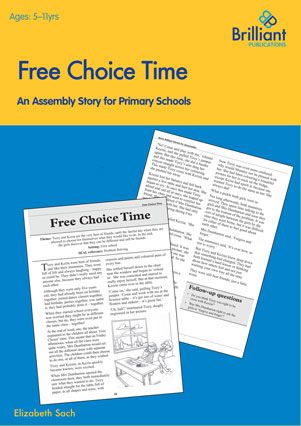Jazz–Hands
Shade is a very proud, beautiful young mixed-raced girl who has a talent for dancing. Despite her pride, she feels somewhat ashamed of her ethnic diversity and is self-deprecating and reticent towards others.
When her dance teacher pairs her with Kathryn, a white girl with skill comparable to Shade’s, Shade feels awkward and reacts by deriding Kathryn as being uptight, to which Kathryn urges Shade to give up on her grudge and self-righteousness. This provokes a shouting match that grabs the full attention of the whole dancing class. When it seems as if the exchange is going to get physical, Kathryn does something shocking:- she takes the moral high ground, extending a hand of friendship to Shade. She announces that she too is of mixed descent and Shade discovers that she has been so consumed by herself that she has become ignorant. She realises that fitting in isn’t all about everybody looking or acting the same, or having skin that is the same colour – everybody has their differences.
This tale teaches children in primary school assemblies that sometimes diversity isn’t immediately apparent/visible to others (As for Kathryn, being of mixed-race and having white skin) and that they should avoid making preconceived judgments. This focuses listeners’ attention on the promotion and celebration of all kinds of differences. It may make those who, like Shade, feel uneasy about their self-perceived nonconformity realise that they will be accepted by others and should reassure them to have more confidence in their own skin.
Feeling confident can be especially difficult for young children who feel that they are of minorities that cannot necessarily be categorised or recognised by others, but this story teaches that fitting in to one category is not a requirement. Others should feel encouraged to be kind and considerate to and accepting of heterogeneity – after all, we are all different in our own way.
£0.49 price excluding tax
Description
Shade is a very proud, beautiful young mixed-raced girl who has a talent for dancing. Despite her pride, she feels somewhat ashamed of her ethnic diversity and is self-deprecating and reticent towards others.
When her dance teacher pairs her with Kathryn, a white girl with skill comparable to Shade’s, Shade feels awkward and reacts by deriding Kathryn as being uptight, to which Kathryn urges Shade to give up on her grudge and self-righteousness. This provokes a shouting match that grabs the full attention of the whole dancing class. When it seems as if the exchange is going to get physical, Kathryn does something shocking:- she takes the moral high ground, extending a hand of friendship to Shade. She announces that she too is of mixed descent and Shade discovers that she has been so consumed by herself that she has become ignorant. She realises that fitting in isn’t all about everybody looking or acting the same, or having skin that is the same colour – everybody has their differences.
This tale teaches children in primary school assemblies that sometimes diversity isn’t immediately apparent/visible to others (As for Kathryn, being of mixed-race and having white skin) and that they should avoid making preconceived judgments. This focuses listeners’ attention on the promotion and celebration of all kinds of differences. It may make those who, like Shade, feel uneasy about their self-perceived nonconformity realise that they will be accepted by others and should reassure them to have more confidence in their own skin.
Feeling confident can be especially difficult for young children who feel that they are of minorities that cannot necessarily be categorised or recognised by others, but this story teaches that fitting in to one category is not a requirement. Others should feel encouraged to be kind and considerate to and accepting of heterogeneity – after all, we are all different in our own way.




Reviews
There are no reviews yet.